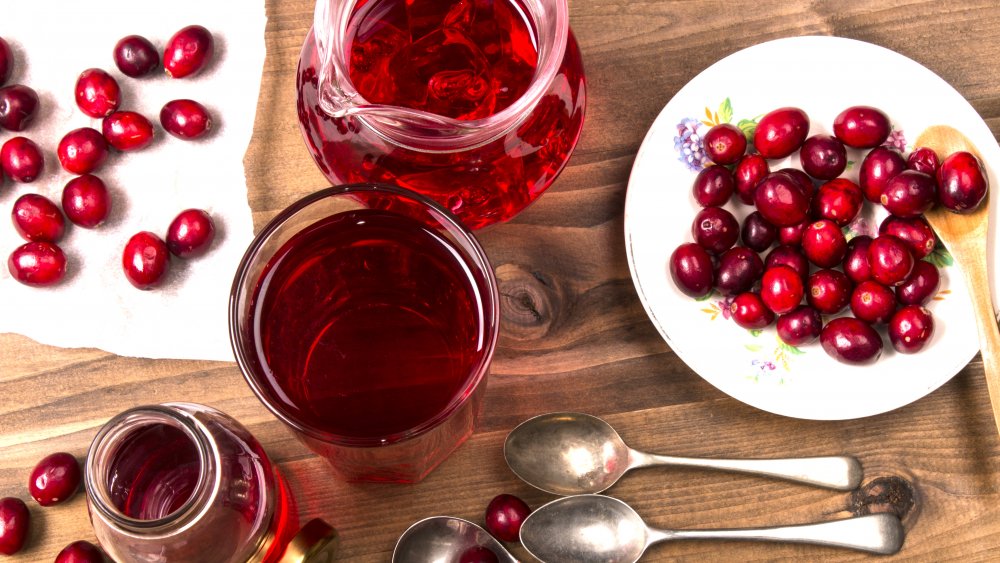When You Drink Cranberry Juice Every Day, This Is What Happens To Your Body
Cranberry juice doesn't just taste good, it's full of health benefits too. According to Shilpi Agarwal, M.D., cranberries are full of an antioxidant called proanthocyanidins (PACs), which is the reason cranberry juice is often recommended as a preventative for urinary tract infections (UTIs).
"PACs reduce the ability for bacteria to stick to the wall of the urinary tract and thus reduce chances of developing urinary tract infections," Agarwal told Well+Good. And they have also been proven to reduce gum disease, too. "Preliminary studies show that cranberries can help reduce bacteria's ability to stick and grow in the oral cavity and limit gum disease, in the same way as they do with UTIs," she revealed.
But does this mean you should be drinking cranberry juice every day? Here's what happens to your bod if you choose to lift a glass of the good stuff on the regular.
Cranberry juice has benefits — in moderation
According to nutritionist Jenna Gorham, RDN, cranberries are full of vitamin C, which is important when it comes to keeping your immune system healthy and fighting sickness. "Just one cup of cranberries contains 22 percent of the recommended daily value of vitamin C," she told Well+Good.
While both Gorham and Agarwal recommend incorporating cranberries into your diet, they believe you'll get the most benefits by eating or drinking them in their purest form. Healthline agrees, noting that if you're opting for cranberry juice, you should always read the ingredients on the label to ensure you only buy products made with 100 percent real juice.
However, if you're considering drinking cranberry juice every day, it's also important to be aware of the downsides. According to WebMD, cranberry juice can cause stomach discomfort, diarrhea, and even kidney stones if you consistently drink more than a liter every day. Cranberry juice containing a lot of sugar can be troublesome for those with diabetes, and those who are allergic to aspirin should also be wary it often contains salicylic acid, which is very similar.

